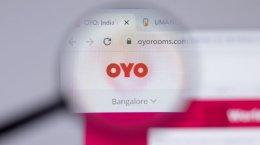India's railway minister unveiled a mix of populist measures, including cheap tickets for the poor and no increase in freight or passenger fares, as well as steps to boost the sprawling system's efficiency and finances.
Friday's railway budget speech underscored the Congress party-led government's focus on "inclusive growth" after it was reelected by a wider-than-expected margin in May. Prime Minister Manmohan Singh's government will present its budget on Monday. "The old mindset of economic viability should be substituted by social viability," Railways Minister Mamata Banerjee said in an address to parliament.
Banerjee, looking to take advantage of the railway's vast property holdings, said land along the new freight corridor would be put to productive use, and also said the railway operator will resume issuance of tax-free bonds.
Over the five years through March 2009, India's railways generated a cash surplus of about $18.8 billion.
She also said the group will build a 1,000 megawatt electricity plant -- India suffers from a severe energy deficit -- to power electric locomotives. She said the system would look to introduce double-decker trains, and take advantage of its fibre-optic communications network. "I visualise an eastern industrial corridor developing alongside the eastern dedicated freight corridor," she said in the ministry's annual budget address.
Arun Kejriwal, research strategist at broker KRIS in Mumbai, said the speech gave a clue to the government's policy leanings.
"One key takeaway that probably is an insight for the main budget is that the 'aam admi', the common man, seems to be an underlying concern," Kejriwal said.
"That gives you a hint that if anybody is expecting great things, a forward-looking reformist budget, I'm not sure that is the right way to look at it."
With a 63,327-kilometre (39,350 mile) network, the railways play a key role in Indian life, transporting more than 18 million passengers and more than 2 million tonnes of freight daily.
But the system is plagued by crowding and outdated technology. Every day, about 8 million passengers cram onto commuter trains in the financial hub of Mumbai, with roughly a dozen daily fatalities.
PASSENGERS FIRST
Banerjee said meeting needs of passengers is more important than financial performance.
To that end she said 50 stations would be upgraded to international standard, and she outlined plans to improve toilets, food and water availability, and shopping at stations.
For the poorest passengers, for whom railway transport is the most popular form of long-distance travel, Banerjee said fares would cost just 25 rupees (about 50 cents) for trips up to 100 kilometres.
She set a target for freight traffic in the fiscal year that ends in March 2010 of 882 million tonnes, up 6 percent from a year earlier. Freight traffic increased 5 percent in the recently completed fiscal year.
There was little early reaction from the markets. The yield on the most actively traded 7.94 percent bond maturing in 2021 was unchanged at 7.03 percent while the benchmark stock market was 0.2 percent up.





